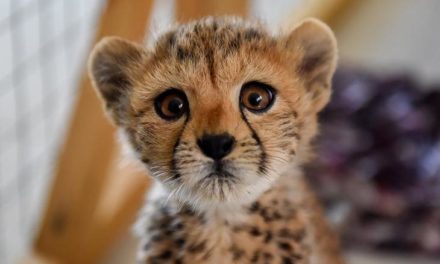
Large commercial sponsors invaluable to keep Kunene’s black rhinos alive

The extraordinary success story of the Save the Rhino Trust revolves around two key elements, local community buy-in and donor support.
In the early nineties, community support came via conservancies, a unique Namibian conservation model of which the value has been proven over and over. With the promulgation of the Community-based Natural Resource Management Act in 1996, the road was cleared for more communities to join the protection effort to ensure the survival of the desert-dwelling black rhino which in turn started generating revenue through ecotourism.
In the wake of the perceptible growth in numbers of the black rhino population in the Kunene Region, interest from sponsors began to wax. This helped cover the enormous cost of protecting the indigenous black rhino population, especially since 2012 when rhino poaching, almost unknown before in Namibia, became a serious matter to deal with.
A key organisation that stepped to the fore at this critical hour was the Canadian gold mining company, B2Gold with a record-setting N$3million sponsorship to the Save the Rhino Trust for the period 2015 to 2017. During a recent field trip in Kunene, B2Gold generously contributed a further US$50,000, half from the company and half personally from Mr Clive Johnson, President & CEO of B2Gold Corporation.
B2Gold’s timely intervention enabled the Trust to rapidly adjust and shift its focus from in-the-field protection to pre-emptive intelligence gathering and prevention. The results are hugely positive. Poaching declined to such an extent that not a single incident occurred during the recent summer holidays.
Honouring the contribution from both B2Gold and its Chief Executive, the Trust said this week that since the first poaching incident in 2012, overall patrol effort has increased by 360% with sightings up an impressive 380%.
The percentage of known individual rhinos seen on average each month has risen from about 20% to nearly 80% while the number of trained and equipped Conservancy-based Rhino Rangers has grown from zero to 55 rangers across 13 conservancies. By these combined efforts, poaching has been reduced by 80% since the peak in 2013.
In 2017, six separate poaching attempts were foiled by law enforcement officers who received voluntary pre-emptive intelligence from local communities. The gang of poachers responsible for the last killing in 2017 were caught in the field and apprehended.
“Through open and honest communication with our valued stakeholders, partners, donors and supporters we have solidified our support base both locally and internationally. B2Gold must be particularly recognized for both the timing and the scale of their contribution to protect the desert-dwelling rhinos,” stated the Trust adding that it would like to extend its sincere gratitude to B2Gold represented by Mr Johnson and Mr Mark Dawe, the Country Manager and Managing Director of B2Gold Namibia.











































